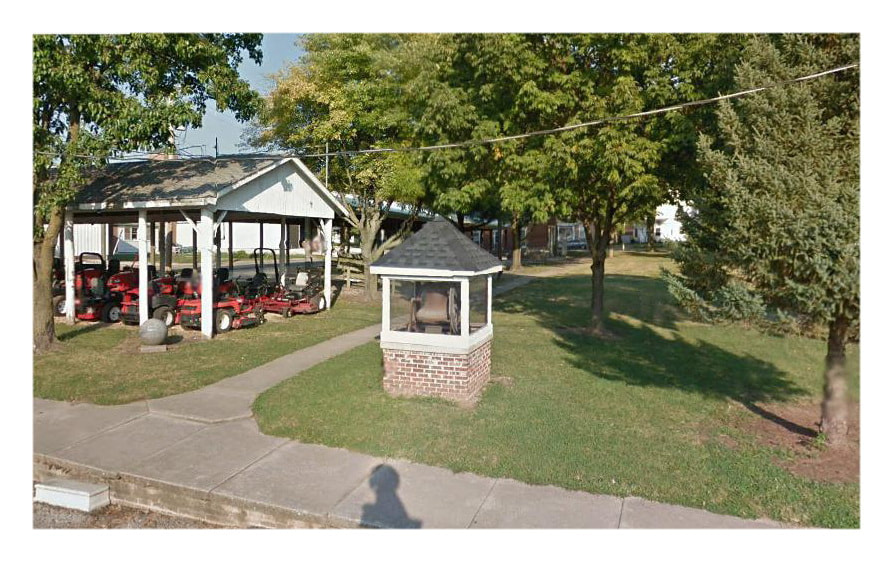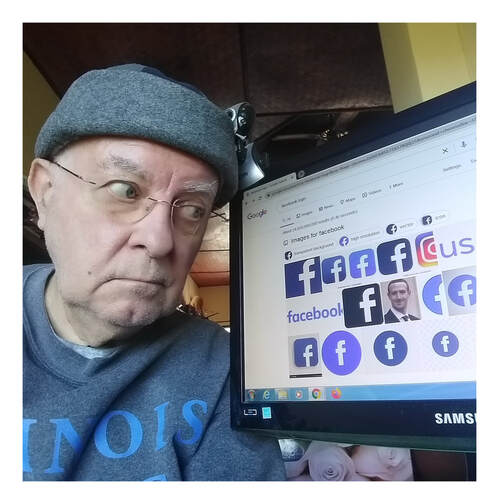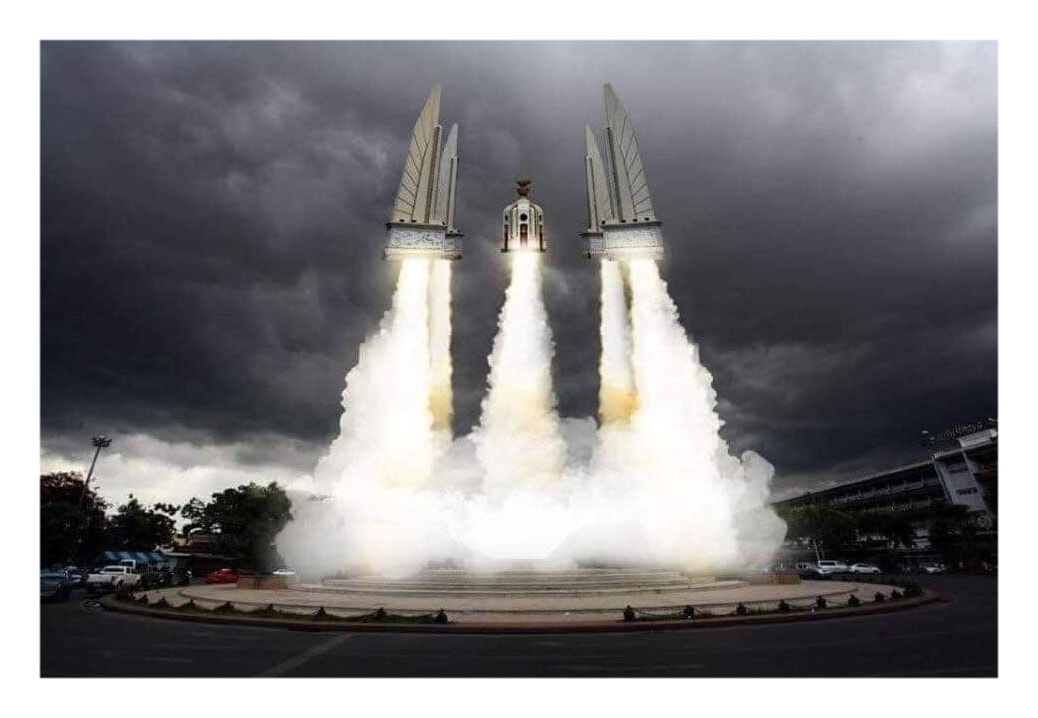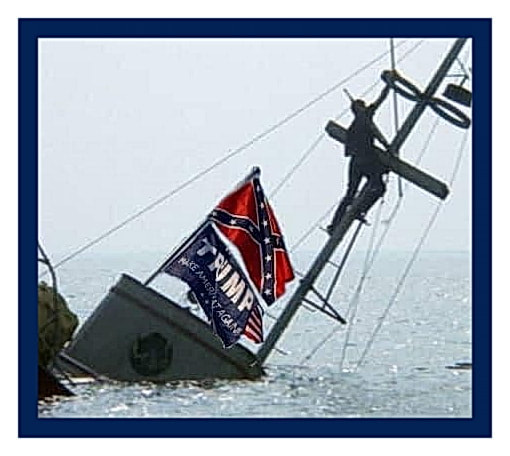|
Boy was I wrong!
A year ago (in my blog on January 3) I made predictions as follows: 1. I join Noam Chomsky in predicting that Donald Trump will win a second term as President of the United States. 2. In Thailand projects will multiply to normalize the reign of the new King. 3. The Church of Christ in Thailand will face humiliation and governmental scrutiny. 4. Prime Minister Narendra Modi’s aggressive nationalism in India will either backfire as ethnic-religious minorities unite to oppose infringement of their civil rights and status, or international opposition will materialize as the specter of massive militant Hinduism again looms over South Asia. The biggest mistake I made, along with almost every pundit on earth, was to ignore the year’s greatest disaster, the COVID-19 pandemic. I remember actually thinking I should include it, but my blog was getting long. Obviously, the second big mistake was to give in to my fear that Trump would pull off a second term as Democrats sputter and splinter, as we usually do. It was Trump’s incompetent handling of the epidemic that did him in. My other mistakes were more subtle. In Thailand projects have multiplied to normalize the reign of the current King. He has moved back to the country, and a wide-ranging campaign to rally recognition of his standing is underway. What we missed came completely out of the blue when the young generation defied history and began demanding constitutional reforms that include new fair elections and royal submission to constitutional law. That protest movement was the Thai political story of the year. As for the Church of Christ in Thailand, I was mostly wrong. Government scrutiny has continued, but it has not interrupted the functioning of the CCT. The officials continue to run things and to function. In India neither of the things happened that I said would occur. Ethnic minorities did not rise up and international opposition to Modi’s aggressive nationalism came neither from international Islamic forces nor from China. It could be that future historians will refer to 2020 as the year of a massive change in the way people do things, including the way they communicate and create communities. That would be a paradigm shift. Anyway, I think I know what I was doing wrong with my predictions, and I have fixed it. I was using the wrong type of prognostication device. It is not swirling clouds inside a crystal orb I should have been looking for, but bright reflections with the truth spectrum neatly illuminated. I have an improved crystal ball. And it has told me all I need to know about 2021. It has said, “Take it one day at a time.”
1 Comment
Sixty years ago, in the town of Arenzville, Illinois, off in the corner of Cass County, at 7:30 on Christmas Eve the bell was rung in the steeple of the old Cumberland Presbyterian Church. Sometime in the afternoon one of the men has stoked the fat furnace in the basement. The one-room church was warm. Amber light glowing on the snow from the windows invited the whole town to come, but there were only a few of us.
It was perhaps to be the last Christmas for the church on the corner of the public park in Arenzville. For years the Presbyterians had been struggling with diminished numbers and rising costs. Now they were facing the fact that either the building itself had to be rebuilt or the Presbyterian enterprise had to be abandoned. It was a tremendous struggle that had gone on all year. At a meeting of the congregation in November the hearts of the members were spilled out. Lydia came over from her house across the street where she had lived as a member of the church and town for eighty years. Standing up in the meeting she had declared, “If you close this church, I will come here and pray on the porch by myself.” But as we listened to the bell right there in the steeple at the back of the room and felt the floor shaking, we knew the end was inevitable. The tilting bell tower made the whole church look as if it were leaning over the street. Yet, in the middle of our grim effort to have one last Christmas, three little girls and Joey, all starched and polished, materialized on the platform. As Rena Kruse banged out a rendition of “Away in a Manger” on the tinny upright piano they sang, “Away in a manger, no crib for a bed, the little Lord Jesus, lay down His sweet head.” I sat on the side of the podium, strangely detached and caught myself watching the four children in front of me, and I knew that it had happened again. The magical mystery of Christmas had transpired. The veils had parted for a moment as we sat there and watched four children remind us what Christmas was all about. For one moment, the children, the song about Jesus, the brass bell, the leaning church, the town, and the whole wonder of Christmas were an eternal unity, Christmas one more time. [The picture accompanying this reminiscence is of the church bell, preserved by the village on the spot the church used to be.] I signed onto Facebook more than a decade ago in order to keep in touch with relatives who live far away, on the other side of the world in our case. Up to that point I was happy enough with letter-writing but I was losing contact with the younger generation. They were not all spending time on Facebook, but some were. For several years Facebook improved our connectivity and seemed valuable as a means to remember important days, and to respond to unfolding events.
Over time, Facebook evolved. It became complicated. First came ads. Long before social media there was mass media. TV had been free to us because of program sponsorship. Radio had worked that way. The Lone Ranger came thanks to Cheerios. Kraft and Hallmark brought quality entertainment into our living rooms so we did not always have to get into the car and go anywhere. In some cases, the ads became the main attraction, as during the Super Bowl. Our generation tolerated ads. After the ads multiplied on Facebook, sources became murky. We lost track of the origins or provenance of things showing up on our timelines. TV again inured us to blurred facts which had always been certain if they came with assurances by Edward R. Murrow, Walter Cronkite, or Huntley and Brinkley. Propaganda was clearly labeled. We had been lied to, but if that was exposed the liars were punished one way or another. We counted on a firm line between truth and fiction. Then news became entertainment. Cable TV, as I remember it, brought increasing options for news addicts. To break the monotony of constant recycles of the same clips, but to keep the pretense that the programs were about current events, they interviewed involved people, and then they developed their own celebrity experts. Inevitably, the news and views channels slid into selected points of view. There were “Christian TV” programs which became full-time channels alongside sports, reality TV, and on-line auction channels. We got used to this the idea that “it’s their channel and they’ll say what they want to say.” Then came Facebook. Facebook replaced Google-mail which had pretty well replaced airmail (beginning to be called snail-mail). After a few years something happened. Sometime between our initial signing onto Facebook and today, our contract changed. What we wanted was connection with people we know. Facebook expanded our list of contacts and our definition of “friends” as we found connections with people we used to know way back when. They are now people we no longer know and they have interests and opinions that generally surprise and sometimes shock us. They are into groups and are voicing opinions on our timelines that gets calculated by algorithms. So we are fed more of the same, whether it began with what we like or what somebody we hardly know likes. Say we don’t like it. It, that stuff whatever it is, aggravates us. Our mood is altered and we grow impatient. So we might speak “frankly” and then discover a meme that’s even cleverer. It delivers a satisfying slap. We post it. We’re on a roll. We didn’t intend to be, and it’s not like us to be feeling angry toward people we hardly know and their friends we never knew and don’t even want to know. We aren’t as likeable as we want to be. Social media turned each of us into our own editor and producer. Our audience was limited, to be sure. But we were in charge of our Internet domain. We could tell people what we would permit and compose whatever we wanted. Now we’re at a new threshold. We still post what comes to mind, but our minds are being bent. We didn’t intend to be angry so much of the time, and it’s not like us to be feeling angry toward people we hardly know and their friends we never knew and don’t even want to know. We aren’t as likeable as we want to be. Our minds are being invaded. What we “know” is being manipulated. The line between information and opinion has been destroyed. Facebook has evolved from a social networking website into the world’s biggest information platform. Facebook and WeChat are now challenging Fox, CNN and Xinhua as the largest purveyors of information and with everybody at the controls there’s nobody in charge of quality or veracity. This gives advantage to those with motives and technical skill to bend our minds, and they are taking advantage of it. If you doubt your mind is being targeted ask yourself, “Am I angry when I don’t want to be?” “Am I suspicious of people I don’t even know?” “Do I know that what I fervently believe is true?” WHAT A HEADACHE HOLIDAY PLANNERS ARE HAVING
December 5 was Father’s Day in Thailand, established during the premiership of General Prem Tinsluanonda on the birthday of HM King Bhumibol who was being recognized as “Father of the Country”. The day was listed as Thailand’s national day on the United Nations calendar, and Thai embassies around the world were accustomed to have celebrations attended by the countries’ leaders. December 5 is widely mentioned as Father’s Day, and a night-time celebration in Bangkok featured the late King. Because December 5 fell on Saturday, Monday was on all calendars as the “make-up” holiday with government offices closed, but after Covid-19 disrupted all the normal April and May holidays, the government announced that Thursday December 10 (Constitution Day) would be a full-fledged holiday, and Friday December 11 would be a holiday, as well, in place of the birthday commemoration on December 5. That would make December 10 to 13 a 4-day weekend and would encourage travel to aid the suffering tourism sector. But the King conducted traditional ceremonies and the government went ahead with a big ceremony, concert, and fireworks and drone display at Sanam Luang outside the Grand Palace on December 5. For the past couple of years attention has been shifting, at the instigation of the Palace and government, to memorialize HM King Bhumibol the Great on October 13, the date of his death, as is traditional, along with his Grandfather, HM King Chulalongkorn the Great on October 23. Around here, after dark on the fifth, our nearest neighbor was the only one celebrating. He shot off 8 or 10 loud firecrackers terrifying our cats and arousing neighbors. I went to suggest he hold off, but he said it was a tradition he was upholding. I pointed out he was the only one doing so and he declared his veneration of the king who gave him a place to live. I think his conspicuous consumption of alcohol had a lot to do with his reasoning. What I conclude, as an observer, is that the late King has 3 holidays this year. It is not yet time to pare-back public adulation. But this year I have not been able to find any mention of Thailand’s National Day on Thailand’s official websites. The government may have gone ahead with embassy events, pretending Thailand has a National Day although with the late-King gone the day is no longer as noteworthy as the day Great Britain troops the colors to celebrate Queen Elizabeth’s official birthday in June (her real birthday anniversary is in April). Other nations have declared their independence days as their national days. As for Constitution Day, coming on Thursday, December 10, we will wait and see what happens. Thailand has had 20 constitutions and charters since the revolution in 1932, and the current constitution is the subject of nationwide protests going on for nearly 6 months mostly by student groups. The protestors object to the way the constitution was imposed by a military dominated parliament, ratified by a contrived referendum, and then unilaterally amended by the King to his benefit. Those groups are very likely to try to make this year’s Constitution Day a matter of ridicule. (The idea that constitutional democracy still exists is what is being lampooned in the cartoon above of the Democracy Monument blasting off and going far, far away.) However, the government has been taking an increasingly ominous hard line against the protests and the days of big protests for constitutional change are being seriously challenged. It’s been a difficult year to plan holidays. Still, I’m pretty sure Christmas will still be on December 25. What do Donald Trump, King Rama X of Thailand, and Queen Elizabeth II of Great Britain appear to need? I would call it celebrity recognition. But the reasons they would try to defend that status are complicated.
First, consider what is involved in being a celebrity. “Celebrity-ness” is measured by two factors: recognition and reputation. Being a celebrity is also defined by time and population. RECOGNITION If a person is a celebrity these days, fame is the key factor. The measure of one’s celebrity status is from zero (no one knows who you are) to universal (almost everyone recognizes you). Even so, one’s celebrity status is contained within a given population and period of time. A future heir to the throne of Great Britain is automatically guaranteed of greater recognition than his distant cousin the heir to the throne of Luxembourg. The golf winner of the Master’s green jacket is going to be more famous than the winner of the trophy for a Dublin Snooker championship. Territory matters and so does the size of one’s fandom. REPUTATION Sports and entertainment stars are celebrities who outshine others in the same fields. There are also celebrities in other fields including politics, military, religion, and (for lack of a better term) adventure. Examples: politics – Gandhi; military – Ike; religion – Mother Theresa of Calcutta; adventure – John Glenn, astronaut. We like our heroes to have accomplished great and noble things while overcoming formidable odds. Although we prefer “good” celebrities, reputation is measured on a scale between famous and infamous. Jesse James is about as famous as Mark Twain, but they tend to be on opposite ends of the reputation scale. Celebrities stand on a slippery stage. How they get there in the first place probably has to do with talent, luck, support, or birthright. How they move from the shadows into the spotlight does, too. But fame is a fickle friend. Recognition can rise and fall. Ozymandias was once (according to Shelley) the most famous, powerful, and feared man in the world but by 1818 all that was left was just a shattered statue sunk in the desert. Adolf Hitler remains the most reviled person in history, on most lists, although he too will disappear in time. His rise and fall along with the Third Reich he created is the most studied mystery of the last 200 years. Loss of standing as a celebrity can be troublesome. It is pretty agonizing, one would imagine, going from adulation to denunciation. A celebrity can even lose a job that way, as Johnny Depp seems to have done. It is worse when the collapse is the loss of public respect as well as interruption of ability to perform, as happened to Tiger Wood (due to revelations about his personal life and physical conditions that prevented him for several years from being able to play golf well). Tiger has apparently recovered a measure of his prowess. Recovery for Oscar Wilde came too late to save his life, although he died with his talent undiminished. Van Gogh also died too young to know he was going to be acclaimed his century’s greatest artist. A great many painters are far more famous dead than they were alive. In fact, dying drives up the value of their work. Recently I have been considering the esteem of several well-known persons, Donald Trump, Queen Elizabeth II, and the King of Thailand in particular. From news accounts, I have deduced that something is important to them in addition to their official status and duties. As Donald Trump reluctantly relinquishes the office of President of the United States, analysts are scrambling to name the reason he is behaving in a way no previous president has done after losing an election. The media have noticed how HM QE II’s relationships with members of her family and her government have depended on some obscure factors. As HM Maha Vajiralongkorn has returned to apparently take up residence in Thailand, the palace has been aggressively renewing his public persona. Let me suggest it is valuable (for various reasons) for these otherwise famous and powerful people to be celebrities as well. It is assaults on this aspect of their status that have impelled responses. Even when elections are not a factor, kings and queens last longer if their recognition and reputation remains stellar. Republican movements are only a generation away, perhaps less. But royalty are concerned for oncoming generations in their families as well. They are better off if their place in public esteem is high and positive. It may be difficult to get accurate information, but this need does explain quite a bit. We decorate, but why?
Pramote is keen to decorate for Christmas. Every year we put some money and a lot of time into it. He was excited to get a box on Thanksgiving from daughter Julie in the USA that has some new decorations. We are the only household to decorate for Christmas in the six villages we have anything to do with. The easy answer as to why there is no other decoration going on around here is that Christmas is not a “thing” where we live. There are other occasions for decoration here in Northern Thailand. Many houses are lighted and gateways festooned for Loy Kratong. Weddings call for flowers. So, as we pull the sacks and boxes of Christmas decorations out of storage and get ready to see which still work without smoking, I wonder why it’s EXCITING, because that’s why Pramote is doing this. Why do people decorate? Where does the “kick” come from? Here’s my initial list of reasons: 1. Decorations change conditions. They break the routine, add novelty, and alter the mood. The decorations kick us out of the mundane and into an environment that’s super. This has not been a good year for most of us. Marie said she put up her Christmas tree last week because she needed Christmas NOW. I see you nodding. 2. Decorations are reminders. The mall has a faux Christmas tree almost 3 stories tall. It must have thousands of lights – cost a mint. Why? Buy! It’s a commercial reminder of what this season is about according to the mall. But the reminders are not all about putting out money. Old ornaments remind us of Christmases past. Just going through the process of stringing up the decorations can do that, too. Sometimes decorating is about the heart-tug. 3. Decorations are declarations. Actually they are not mainly tribal, although they pretend to declare “we are part of this culture that has Christmas.” Even more, they declare individuality and independence. A Christmas display proclaims, “This is one acceptable thing I can do just because I want to do it.” Why else would some people go to such effort when so many of their tribe do not? These days almost everything ELSE we do that’s outside the box is socially unacceptable. 4. Decorations are attractive. People go to see decorations. The reason behind the reason people like us decorate is the satisfaction of drawing attention. It’s the reason writers write, young people Tik-Tok, needy politicians Twitter, and we count the number of “likes” we get on Facebook. Decorations attract attention that is gratifying. We need to be appreciated. 5. Decorations express value. These are tough times. Not everybody can show off with an ostentatious display of available funds. New Christmas decorations would be near the top of the list of things to scratch if need be. Not having decorations says something about our priorities and situation. So, sensitive people might cut back on decorations this year, even if they have the means. Community displays, on the other hand, might be worth the effort in order to signify, “We think you might enjoy some color and fantasy in times like this.” Have I missed anything? |
AuthorRev. Dr. Kenneth Dobson posts his weekly reflections on this blog. Archives
March 2024
Categories |
| Ken Dobson's Queer Ruminations from Thailand |
|






 RSS Feed
RSS Feed
